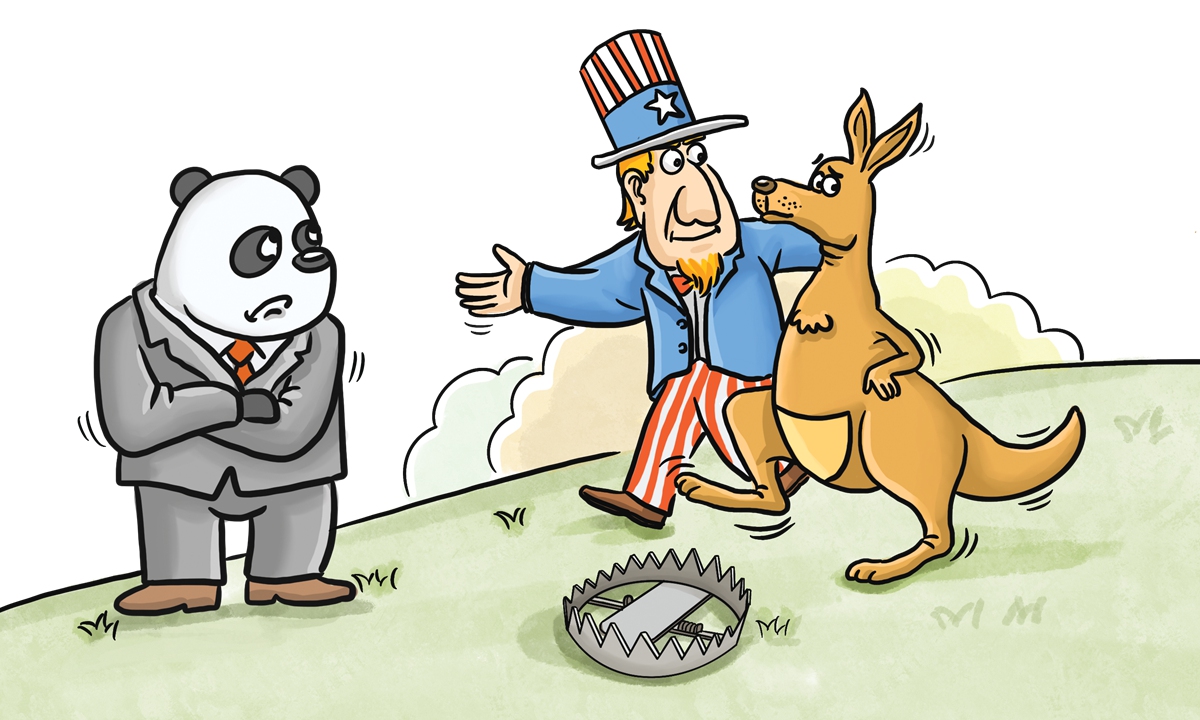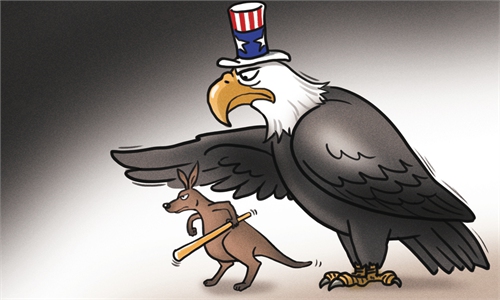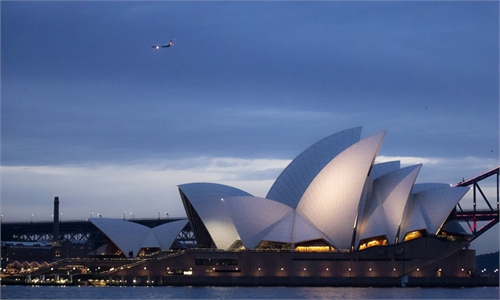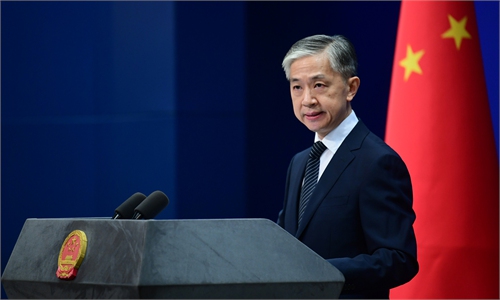Australia's myopic politicians sacrifice national interests for personal gains, US strategic needs

Illustration: Xia Qing/GT
Australia's Prime Minister Scott Morrison is facing an increasingly dismal prospect for the forthcoming federal election. In addition to the ever-pessimistic poll results that have revealed the Liberal-National Coalition in a continuous downswing against the Labor Party, Morrison himself has been lambasted with censorious missives from outside and within his own camp. The latest bombshell came with the revelation that Morrison made outright racist slurs during the preselection campaign in 2007 over his competitor's Lebanese background. This adds to his woes when the outgoing Liberal Senator Concetta Fierravanti-Wells recently accused him of being an "autocrat and bully who has no moral compass." Morrison "destroyed the Liberal party" and is "not fit to be prime minister," said the indignant veteran parliamentarian. Such denunciations of him resonate with his Deputy Prime Minister Barnaby Joyce and French President Emmanuel Macron who similarly questioned his political competence and personal integrity over the past six months.As a desperate way to wade out of the present political quagmire, Morrison has recklessly resorted to the "anti-China card" by ostensibly putting up the pretence of a tough and strong leader against China, which has been fabricated as a threat to Australia. He ludicrously links Beijing to the Ukraine crisis, threatening to condemn and sanction China for providing alleged "lifelines" to Russia. He launched a disinformation campaign slandering China's constructive and productive cooperation with the South Pacific island nations. In particular, Canberra has been insultingly trying to coerce the Solomon Islands to halt its security cooperation with China, in total disregard of the island country's independence and sovereignty.
What's more, in the past four years since he took over the prime ministership in 2018, Morrison has been ceaselessly defaming China, with the bilateral relations spiraling downward to an all-time low since the establishment of the diplomatic relationship between the two countries in 1972. The ferocity of his hostility toward Beijing has been intensifying as the national parliamentary election approaches. According to Nikkei Asia on March 8, "as Australia heads for a general election due by May, Prime Minister Scott Morrison has been positioning himself and his conservative Liberal-National coalition as the tough-on-China camp." Morrison viciously attacked his Labor opponents as "Manchurian candidates" and horses picked by China, trying to induce a mass panic for the alleged "China threat" among the general population in Australia.
The result of this anti-China hysteria has been the stigmatization and humiliation suffered by the 1.2 million Chinese Australians over the recent years. Since mid-2017 when Canberra started to sabotage the previously mutually beneficial comprehensive partnership, immigrants with Chinese ancestry as well as Chinese students, investors and businesspeople have been undergoing verbal and physical assaults, with racial discrimination once again resurfacing in spite of decades of efforts to put in place multiculturalism as Australian national policy. According to a survey conducted by the think tank, the Lowy Institute, almost 1 in 5 Chinese Australians experienced threats or attacks in 2020 because of their ethnic heritage.
During the past year, Canberra has been constantly wooing the full-fee paying international students, especially those from China, to fly back to study Down Under for their secondary and tertiary education, which is in fact one of the most lucrative sectors of Australia's economy. Some Chinese students recently arrived at the Sydney airport with their valid university acceptance and visas, only to be interrogated and searched by the Australian border control officers, who later repatriated them on preposterous "security" grounds. Many of the young Chinese students and their parents who used to have a keen interest in educational opportunities in Australia are now deeply disillusioned and concerned and have second thoughts when making decisions for overseas study. Such is the unequivocal outcome of Canberra's anti-China policies and practices.
Disappointment and mistrust also spill into the business sphere, with Chinese investment and trade declining because of the loss of confidence in Australia as a friendly and welcoming business partner. What's even worse, Canberra has even been beating "the drums of war" for a prospective military confrontation with China, beefing up its military capacity to fit into the US' strategy to deter and contain China.
It is plain to any eye that the incessant impairments to Australia's relations with China would only boomerang and backfire. People won't be misled and swindled by a few myopic politicians who have been injudiciously sacrificing Australia's national interests for their short-term partisan gains and Washington's strategic hegemonic goals.
The author is president of the Chinese Association of Australian Studies and director of the Australian Studies Centre at East China Normal University. opinion@globaltimes.com.cn



